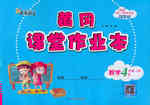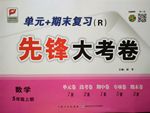题目内容
2.Speed-reading is an essential skill in the Internet age.We skim over articles,e-mails to try to grasp key words and the essential meaning of a certain text.Continuous information from our electronic devices,it would be impossible to cope if we read word by word,line by line.But a new trend calls on people to unplug and enjoy reading slowly,listing benefits beyond intellectual development.A recent story from The Wall Street Journal reported on a book club in Wellington,New Zealand,where members meet in a cafe and turn off their smart phones.They sink into cozy chairs and read in silence for an hour.
Some of these benefits have been backed up by science.For example,a study of 300elderly people published by the journal Neurology last year showed that regular engagement in intellectual activities like slow-reading slowed the rate of memory loss later in life.
Yet technology has made us less attentive readers.Screens have changed our reading patterns from the linear,left-to-right sequence to a wild skimming and skipping pattern as we hunt for important words and information.The Internet may have made us stupider,says Patrick Kingsley from The Guardian.
Slow reading means a return to an uninterrupted,linear pattern,in a quiet environment free of distractions.Aim for 30minutes a day,advises Kelly from The Atlantic."You can spend half an hour pretty easily if only during your free moments-whenever you find yourself automatically firing up your laptop to check your favorite site,or scanning Twitter for something to pass the time-you pick up a meaningful work of literature."
35.We can conclude from the passageC.
A.People dislike reading in their daily life
B.Reading through smart phones is a new trend
C.Some benefits could be gained beyond reading
D.People could do anything in the Wellington book club
36.What advantage of slow-reading is mentioned in the passageD?
A.Improving some reading skills.
B.Specializing in collecting news.
C.Exploring a new method of reading.
D.Reducing the memory loss.
37.Which of the following suggestions can be Kelly'sD?
A.To spare some time to check emails every day.
B.To go through some sites to kill time every day.
C.To chat with favorite persons on Twitter every day.
D.To read literary works for 30minutes every day.
38.What's mainly talked about in the passageB?
A.Fast reading is very important in life.
B.Slow reading is necessary in life.
C.People must read as quickly as possible.
D.Life is reading for all the people.
分析 本文是一篇说明文,主要讲述了在互联网时代,快速阅读已成为一项不可或缺的技能.但是,享受慢阅读正在成为一个新趋势,人们认为它有诸多好处.除了激发智力之外,阅读小说能让人更容易理解他人的心理和观点,而这也是人际关系中最重要的能力.在安静、放松的环境中阅读,能使心智更加敏锐,提高注意力,减缓压力,并且使人更富同情心.阅读等有规律的智力刺激能够减缓老年人的记忆力衰退.
解答 35.C 细节理解题.根据文章第一段中的"We skim over articles,e-mails and tweets to try to grasp key words and the essential meaning of a certain text.Bombarded with information from our electronic devices,it would be impossible to cope(应付)if we read word by word,line by line."可知,我们要能在匆匆浏览过文章、邮件、或是微博之后,迅速找到关键词、抓住文章大意.因为我们的手机、电脑每天都会被海量信息所"轰炸",由此可知,通过快速阅读,人们可以得到更多的信息.故选C.
36. D 推理判断题.根据文章第六段中的"For example,a study of 300 elderly people published by the journal Neurology last year showed that regular engagement in intellectually strenuous activities like reading slowed the rate of memory loss later in life."可知,良好的阅读习惯能够减缓老年人的记忆力衰退.故选B.
37.D 细节理解题.根据文章最后一段中的"Slow reading means a return to an uninterrupted,linear pattern,in a quiet environment free of distractions.Aim for 30minutes a day,advises Kelly from The Atlantic"可知,《大西洋月刊》的凯利就建议大家以"每天读半小时"为目标,"从赋闲的时间里挤出这半个小时是十分容易的.把你为了消磨时光而不自觉打开笔记本上自己喜欢的网站或是刷推特的时间用来读本有意义的书.故选D.
38. B 主旨大意题.根据文章第一段中"But a new trend calls on people to unplug and enjoy reading slowly,listing benefits beyond intellectual development."及整个文章内容可知,文章主要讲述了慢阅读会给人们带来好处,也就是说在快节奏的互联网时代出来需要快速阅读的技能,慢阅读在我们的生活中也是十分必要的.故选B.
点评 解答细节理解题时,一个常用的方法就是运用定位法,即根据题干和选项中的关键词从原文中找到相关的句子,与选项进行比较从而确定答案;推理判断题既要求学生透过文章表面文字信息推测文章隐含意思,又要求学生对作者的态度、意图及文章细节的发展作正确的推理判断,力求从作者的角度去考虑,不要固守自己的看法或观点.

 中考利剑中考试卷汇编系列答案
中考利剑中考试卷汇编系列答案 教育世家状元卷系列答案
教育世家状元卷系列答案 黄冈课堂作业本系列答案
黄冈课堂作业本系列答案 单元加期末复习先锋大考卷系列答案
单元加期末复习先锋大考卷系列答案| A. | Working | B. | To work | C. | Work | D. | Worked |
| A. | hatched | B. | brought | C. | held | D. | spread |
| A. | whichever | B. | whatever | C. | however | D. | whenever |